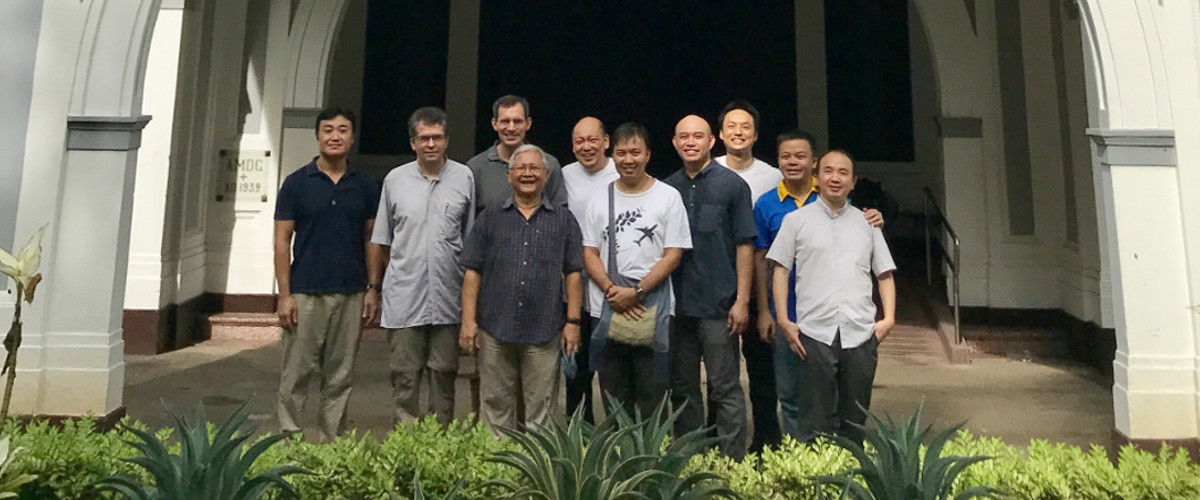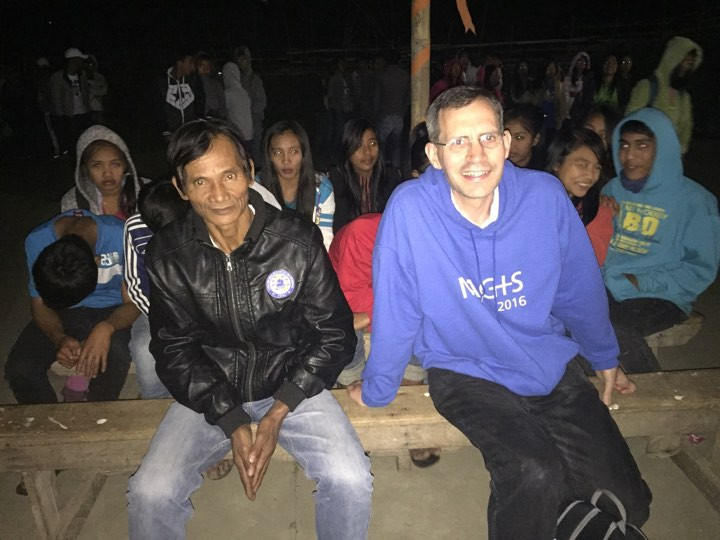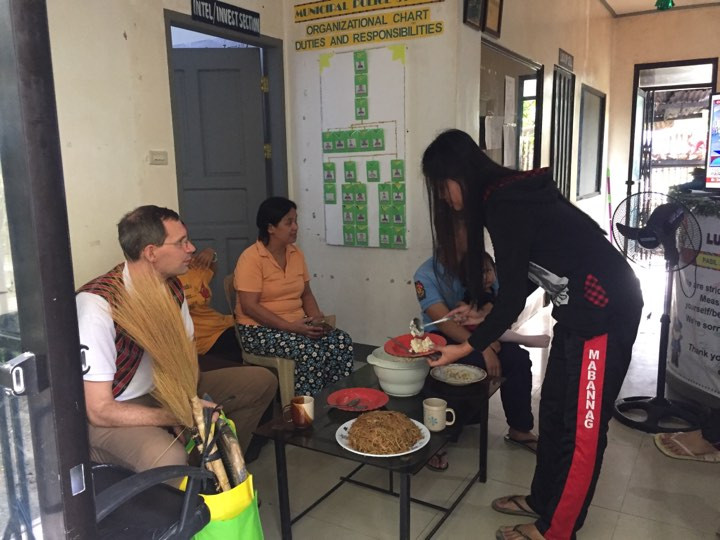
On December 7, the JCAP tertians left Manila for their Christmas ministry in different provinces in northern Luzon, Philippines. Fr Stephan Lipke SJ, a German Jesuit missionary in Siberia, Russia, reflects on his experience of this Christmas ministry that concluded on December 26.
From my days in the novitiate I remember quite well that after the 30-day retreat you need some time for reflection, but you also need practical experience, so that what you have learned during the Spiritual Exercises can “become flesh”. When we started our tertianship in Manila, I heard that the long retreat would be in November and that, some days later, there would be something mysterious called “Christmas ministry”, which was actually not to take place during Christmas time but in Advent.
Thus, I was surprised to see the “Simbang Gabi” or “Aguinaldo”. It was still Advent, yet the singing and the decorations in the churches already belong to Christmas, and people would already say, “Merry Christmas”, sing Christmas songs and have Christmas parties.
 The JCAP tertians were sent to different provinces in the Cordillera, in the far north of Luzon. I was assigned to Pasil, a parish in the “Kalinga Interior”, where Anglican and Catholic missionaries brought the faith only in the 20th Century. For many years this was a Society of the Divine Word (SVD) mission, but just a few months ago it was given to a young diocesan priest. Thus it was he, Fr Jeorge Menasem, and I who travelled to the nine “Catholic” barangays of Pasil during different days to celebrate Aguinaldo Mass. We each celebrated Mass two or three times a day, either before sunrise or after sunset. We also had to celebrate a funeral or wedding Mass on some days. We would go by car to a place close to the barrio where Mass would be, and then hike, sometimes through the mountains, sometimes through rice fields. Often the people would have to wait for the priest, and sometimes the priest would have to wait for the people. Sometimes we had to cancel the Mass and ask the people to have a prayer service because landslides had made it impossible to reach them.
The JCAP tertians were sent to different provinces in the Cordillera, in the far north of Luzon. I was assigned to Pasil, a parish in the “Kalinga Interior”, where Anglican and Catholic missionaries brought the faith only in the 20th Century. For many years this was a Society of the Divine Word (SVD) mission, but just a few months ago it was given to a young diocesan priest. Thus it was he, Fr Jeorge Menasem, and I who travelled to the nine “Catholic” barangays of Pasil during different days to celebrate Aguinaldo Mass. We each celebrated Mass two or three times a day, either before sunrise or after sunset. We also had to celebrate a funeral or wedding Mass on some days. We would go by car to a place close to the barrio where Mass would be, and then hike, sometimes through the mountains, sometimes through rice fields. Often the people would have to wait for the priest, and sometimes the priest would have to wait for the people. Sometimes we had to cancel the Mass and ask the people to have a prayer service because landslides had made it impossible to reach them.
I was often asked, “It is different from Russia here, isn’t it, Father?” “No”, was my answer, “it is not, not very much”. “Do you have such muddy and dirty roads in Russia, Father?” was another popular question. “Yes, we do, most of all in April and May, when the snow melts.” Actually, in terms of landscape, Kalinga is like Russia, just without ice and snow.
 So, the difference between life in Russia and in the Philippines is not the circumstances but the mentality. For example, I went to a Christmas party of the local PNP (Philippine National Police) department. One of the songs they loved singing goes, “The more we get together, the happier are we”. Most of the time, when there is a party, the men play the gong and the women dance around them, with movements that remind me of birds. It is important to offer a lot of food and coffee. Often what is offered for merienda (snacks) is like two or three lunches, just without rice, since there will be rice at lunch or dinner.
So, the difference between life in Russia and in the Philippines is not the circumstances but the mentality. For example, I went to a Christmas party of the local PNP (Philippine National Police) department. One of the songs they loved singing goes, “The more we get together, the happier are we”. Most of the time, when there is a party, the men play the gong and the women dance around them, with movements that remind me of birds. It is important to offer a lot of food and coffee. Often what is offered for merienda (snacks) is like two or three lunches, just without rice, since there will be rice at lunch or dinner.
Maybe the only times I had culture shock (but over and over again) were when people thought that I am American, and when people I had never seen before asked me, “Where are you going, Father?”
For me all this was a very important lesson: If Russians try to cope with the hardships of life on their own, somehow isolating themselves from it all, Filipinos try to overcome it by friendliness (even happiness) and togetherness, by smiling, singing and being hospitable. Maybe a small portion of this is what I can bring from my stay in Kalinga, and maybe this is more important than the soft broom I was given or the tons of sweet rice I had to eat up there.
The Asia Pacific tertianship, sponsored by the Jesuit Conference of Asia Pacific, is held in the Philippines each year, from September to March.
Main image: The Asia Pacific tertians with their instructors after their long retreat at the Sacred Heart Novitiate

